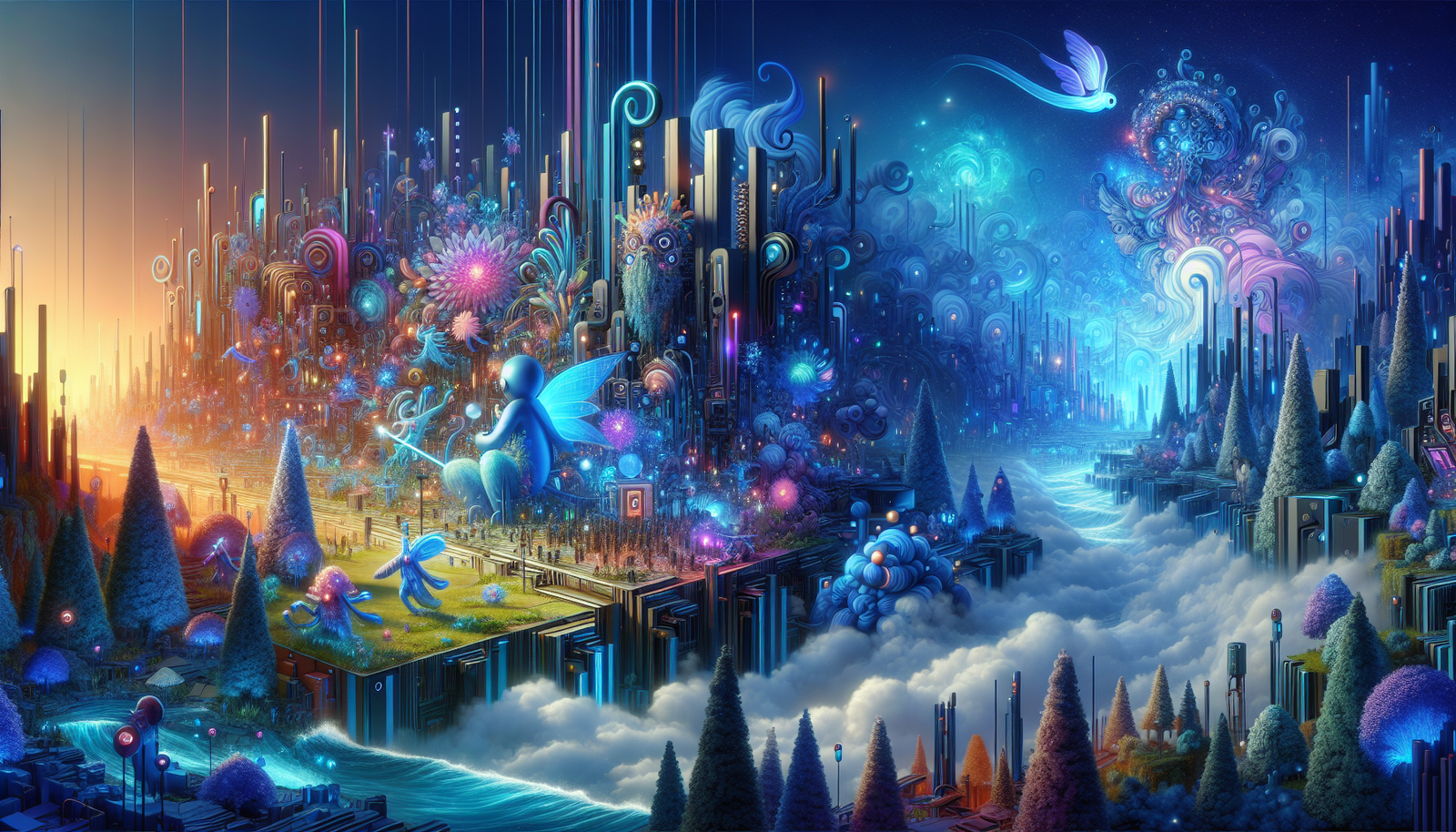OpenAI is at a crossroads, confronted with an atypical dynamic. The *AI-generated images* in the style of Ghibli are flooding social media, creating a real frenzy. The copyright issues emerge, raising awareness about the creative impact of this trend. User-generated content not only overloads ChatGPT’s servers but also highlights the ethics of artificial intelligence. An illusion of creative freedom collides with the reality of intellectual property, raising crucial issues for the future of art. In the face of this tide of works, OpenAI must act to preserve the balance between innovation and respect for artistic rights.
Enthusiasm for AI-Generated Images
OpenAI faces an immersive phenomenon: a proliferation of images generated by artificial intelligence, imitating the iconic style of Hayao Miyazaki. This abundance is fueled by the recent image generation platform integrated into ChatGPT, making creations of beauty comparable to those of Studio Ghibli accessible. Users benefit from a feature that captures the essence of dreamlike landscapes, fantastical creatures, and rather poetic scenarios, characteristic of the works of this great master.
Consequences on ChatGPT’s Performance
This trend observed on social media results in an unexpected congestion of the servers. ChatGPT’s processors are experiencing overload due to an exponential demand for these highly aesthetic images. Users encounter delays in processing requests, exacerbating frustrations. OpenAI is therefore forced to consider regulatory measures to manage this situation.
Ethical Challenges and Copyright Issues
The Ghibli-style images raise not only technical concerns. The question of copyright becomes prominent in the debate. Artists, largely inspired by Miyazaki’s creations, are questioning the impact of AI on their work. Indeed, the copyright related to works generated by artificial intelligences challenges the boundary between inspiration and visual plagiarism.
Creators, facing these challenges, adopt protection strategies, even going so far as to draft fake legal letters to accompany their works. This reflects a growing concern regarding the consequences that machine learning could have on traditional artistic practices. These concerns also highlight the rapid evolution of technology and its influence on human creativity.
Necessary Regulation by OpenAI
The popularity of the image generator calls for strict regulation from OpenAI. The company must reevaluate operational systems to prevent server overload and ensure a smooth user experience. A balanced approach between innovation and ethical responsibility proves essential to navigate this new technological landscape.
OpenAI therefore has the responsibility to protect the interests of artists while continuing to offer powerful visual creation tools. Implementing safeguards could help harmonize AI-generated creativity with ethical standards and user expectations. These adjustments represent a strategic challenge for the organization, which must take swift, appropriate action.
Overview of Future Implications
The debate surrounding AI-generated images, inspired by the Ghibli style, paves the way for broader discussions on creativity, intellectual property, and the transformative potential of new technologies. The conclusions drawn from current reflections will inevitably influence future standards governing the interaction between art and artificial intelligence. OpenAI’s responsibility in this crucial phase will impact how these revolutionary tools are perceived in the long term.
Recent observations illustrate well that an ethical evolution is necessary to ensure a future where technology and human creativity coexist harmoniously. As AI continues to redefine new boundaries in the artistic field, the need for a legal and moral framework becomes increasingly pressing.
For more information regarding this issue, consult the articles on concerns related to copyright, on OpenAI’s challenges or about artists imitating this style.
For those wishing to create without access to ChatGPT Plus, resources are also available here: creating portraits inspired by Ghibli.
Frequently Asked Questions about Regulating Ghibli-Style Images on ChatGPT
Why does OpenAI need to regulate the use of Ghibli-style images in ChatGPT?
OpenAI needs to regulate the use of these images due to the overload of ChatGPT’s processors, which could harm the overall performance of the platform and the user experience.
What legal risks are associated with creating Ghibli-style images with AI?
Creating images similar to those of Studio Ghibli raises questions about copyright, as it could potentially violate intellectual property laws and lead to legal action.
How does OpenAI plan to manage the enthusiasm for this type of images?
OpenAI plans to introduce additional restrictions on generating images inspired by Ghibli’s style to protect copyright and ensure the smooth operation of the platform.
What recommended alternatives exist to generating Ghibli-style images?
Users can explore less controversial artistic styles or use editing features that allow customization without infringing on the copyright of other artists.
How is the artistic community reacting to this trend of AI-generated images?
The artistic community expresses concerns about plagiarism and the impact on traditional artists, emphasizing the need for strict regulation on the use of AI in image creation.
What are the ethical implications of using AI to generate Ghibli-style images?
The ethical implications include questions regarding human creativity, the value of original art compared to AI-generated art, and respect for the copyrights of influential creators like Hayao Miyazaki.
Will free users of ChatGPT be affected by these regulations on Ghibli images?
Yes, even free users may be affected, as the regulations aim to ensure stable performance of the platform for all users, regardless of subscription level.






